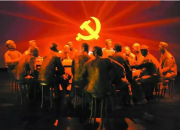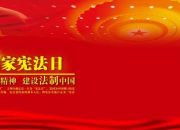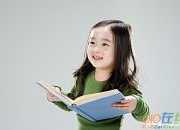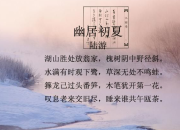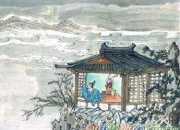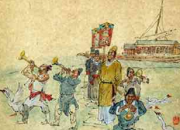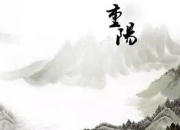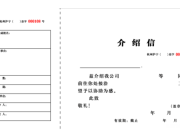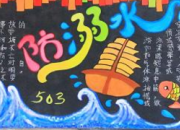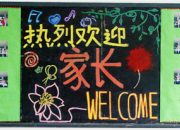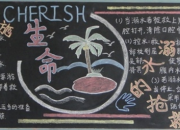高考英语模拟试题答案
时间:2021-08-31高考考生很多人分析英语阅读理解模拟试题难度的相对较少,更没人对阅读理解文本难度进行多因素分析。以下是小编为大家搜集整理提供到的高考英语模拟试题答案,希望对您有所帮助。欢迎阅读参考学习!
第一部分听力(共两节,满分30分)
做题时,先将答案标在试卷上。录音内容结束后,你将有两分钟的时间将试卷上的答案转涂到答题卡上。
第一节(共5小题;每小题1.5分,满分7.5分)
听下面5段对话。每段对话后有一个小题,从题中所给的A、B、C三个选项中选出最佳选项,并标在试卷的相应位置。听完每段对话后,你都有10秒钟的时间来回答有关小题和阅读下一小题。每段对话仅读一遍。
1. What do we learn from the conversation?
A. There will be a math exam tomorrow
B. Today is the man’s birthday
C. The man doesn’t like math exams
2. What colour is the woman’s dress?
A. Blue B. White C. Black
3. When did the man’s daughter set a new world record?
A. In 1999 B. In 2005 C. In 2009
4. What does he man mean?
A. He moved the desk alone
B. He had some classmates move the desk
C. His classmates helped him move he desk
5. What time is it now?
A. 3:10 B. 3:15 C. 4:10
第二节 (共15小题;每小题1.5分,满分22.5分)
听下面5段对话或独白。每段对话或独白后有几个小题,从题中所给的A、B、C三个选项中选出最佳选项,并标在试卷的相应位置。听每段对话或独白前,你将有时间阅读各个小题,每小题5秒钟;听完后,各小题将给出5秒钟的作答时间。每段对话或独白读两遍。
听第6段对话,回答第6、7题。
6. Who might the man be?
A. A waiter B. The woman’s friend C. The woman’s husband
7. Where was the wallet found?
A. In the restroom B. At the cash desk C. On the table
听第7段对话,回答第8、9小题。
8. What are those children like?
A. Shy B. Active C. Selfish
9. Why does the woman have to leave?
A. Because her children are ill
B. Because her parents are in poor health
C. Because her friends made her leave
听第8段对话,回答第10至12题。
10. What happened to the man?
A. He got up late in the morning
B. He stayed up all night reading
C. He felt asleep while reading
11. What makes the man sleepy when reading?
A. He doesn’t like reading
B. He didn’t sleep well last night
C. He doesn’t understand the meaning of the book
12. What may help to better understand a book?
A. Find the main idea first
B. Skip the difficult parts of the book
C. Recite the details of the book
听第9段对话,回答第13至16题。
13. Where does the conversation take place?
A. At a party B. In a shop C. In a game room
14. Whose birthday is coming?
A. The man’s
B. The woman’s brother’s
C. The woman’s son’s
15. How much does the woman plan to spend?
A. $ 50 B. $ 30 C. $ 20
16. What does the woman choose at last?
A. A book about PC games
B. A magic car
C. A pencil-box
听第10段对话,回答第17至20题。
17. Who is the man talking to ?
A. His students B. His parents C. His children
18. Why was the man’s mother mad at him?
A. He didn’t become a doctor
B. He painted everywhere in the house
C. He was crazy about taking photos
19. What is the man’s father?
A. A painter B. A doctor C. A photographer
20. What do we learn about the man?
A. He gave up his dream because of his mother
B. He feels extremely regretful
C. He still paints as a hobby
第二部分阅读理解(共两节,满分40分)
第一节(共15小题;每小题2分,满分30分)
阅读下面短文,从每题所给的'四个选项(A、B、C和D)中,选出最佳选项,并在答题卡该项涂黑。
A
Public events at the Library of Congress
The Library of Congress offers these events to the public at its Washingtonlocation free of charge, except where otherwise noted. Schedules are subject to change. Check back to this site for the latest information. Individuals requiring accommodation for this event are requested to submit a request at least five business days in advance by contacting (202) 707-6362 or ADA@loc.gov.
Exhibition-World War I: American Artists View the Great War
8:30 am-4:30 pm
An exhibition showing how American artists aroused public interest in World War I will open next month at the Library of Congress. “World War I: American Artists View the Great War” will open on Saturday, April 7 in the Graphic Arts Galleries on the ground floor of the Library’s Thomas Jefferson Building . The exhibition is free and is open to the public Monday through Saturday, 8:30 am to 4:30 pm. It will remain open for a year, closing on April 6,2018.
Location: JeffersonBuilding, ground floor, ThomasJeffersonBuilding
Contact: (202)707-6021
Event-“Presidential Inauguration Treasures”
10:00 am—3:30 pm
The two-week display on inaugurations(就职典礼), at the Library of Congress, will feature presidential treasures: the handwritten speeches of George Washington, Thomas Jefferson and Abraham Lincoln and collections on the lighter side: menus, dance cards and souvenirs. The display will include newspapers, film clips, a demonstration of online resources and a challenging presidential history quiz. The display is free and open to the public
Location: Mahogany Row A(LJ113), 1st floor, ThomasJeffersonBuilding
Concert—Jordi Savall and Hesperion XXI
8:00 pm—10:30 pm
Early music star Jordi Savall gathers exceptional performers, classical and traditional, to show the rich musical history of “La Serenissima” over a thousand years of empire(帝国)
* PRE-CONCERT CONVERSATION 6:30 PM-Whittall Pavilion (no tickets required)*
Location: Coolidge Auditorium, ground floor, ThomasJeffersonBuilding
Contact: (202) 707-5502
21. According to thee article, the public events at the Library of Congress_____.
A. are all free and open to the public throughout the year
B. are presented in various forms like exhibitions and shows
C. are only available for local residents of Washington
D. have to be booked at least five days in advance
22. Which of the following is TRUE about the exhibition about World War 1?
A. It is available to visitors seven day a week
B. It could help the public get a better understanding of World War 1
C. American artists will be present at the exhibition to interact with visitors
D. Visitors interested in it can contact(202) 707-2922 for more information
23. Fans of ancient music are most likely to enjoy events held at_____.
A. JeffersonBuilding, ground floor. ThomasJeffersonBuilding
B. Mahogany Row A (LJ113), 1st floor, ThomasJeffersonBuilding
C. JeffersonBuilding, 1st floor, ThomasJeffersonBuilding
D. Coolidge Auditorium, ground floor, ThomasJeffersonBuilding
B
One day, I was teaching my daughter how to paint I saw that a lot of her energy went into dipping(蘸)her brush into the paint, and then into a bowl of water. But then most of the paint that was on the brush would just disappear in the water. As an impatient mother, I was thinking, “ I am trying to teach you how to paint on paper and what are you doing? This is not what you are supposed to do. You have to do this way.”
But she is three years old so she is probably not going to bother (操心)doing it the right way. She had so much fun dipping the brush in the paint and in the water bowl. Pretty much within an hour, most of the paint was all over the room and I just sat there with my hands on my head thinking, “Oh my god, this girl is hopeless.” Soon after, however, she shouted, “Mama, when I mix pink and blue, it turns purple!”
I was surprised. While I was thinking that she was wasting perfectly good paint and paper, she actually learned something. What would have been a very theoretical(理论的)experiment turned into a very practical experiment.
I am a designer and work with software(软件)like Photoshop and IIIustrator . When my daughter sees me work on the computer, she is always very curious and she wants to work with me on the same thing that I do. She starts to mess with buttons, and in that process, sometimes lands up teaching me things! There will be many times when she will find something new. I will ask her how, and she will tell me, “I pressed this, and I pressed this, and then this happened.”
One of the things I realized from this is that everyone has a different way of learning things. When I was growing up, I related to literature(文学)very well, so everything that was turned into a story became my way of learning and understanding different concepts (概念). Some kids understand through art, some understand through math and games, and it’s the job of a parent or a teacher to watch and discover how children learn and try their best to make these experiences educational.
24. How did the writer feel at the beginning?
A. Upset and unsatisfied B. Relaxed and patient
C. Energetic and supportive D. Interesed curious
25. In Paragraph 3, the author was surprised because her daughter______.
A. got a new color by mixing pink and blue
B. learned to paint by herself
C. wasted so much paint
D. learned something she hadn’t expected
26. With Paragraph 4, the author aims to show that_____.
A. kids enjoy acting as teachers to adults
B. adults usually don’t respect kids enough
C. her daughter learns through experimenting
D. kids love to copy what adults do
27. To help children learn more from their experience, the writer suggests parents and teachers_____
A. join with their children to play
B. get their children to read stories
C. learn from their children in daily life
D. find on the ways their children learn
C
French writher Frantz Fanon once said : “To speak a language is to take on a world, a culture.” Since the world changes every day, so does our language.
More than 300 new words and phrases have recently made it into the online Oxford Dictionary, and in one way or another they are all reflections of today’s changing world.
After a year that was politically unstable, it’s not hard to understand the fact that people’s political views are one of the main drives of our expanding vocabulary. One example is “clicktivism”, a compound(合成词)of “click” and “activism.” It refers to “armchair activists(键盘侠)-people who support a political or social cause, but only show their support from behind a computer or smartphone. And “otherize” is a verb for “other”that means to alienate(使疏远)people who are different from ourselves—whether that be different skin color, religious belief or sexuality.
“We had all the words around Brexit(脱欧)in the last and we are now starting to see all the words around Trump coming into the dictionary,” Angus Stevenson, Oxford Dictionaries’ head of content development, told The Guardian.
Lifestyle is also changing our language. For example, “fitspiration”–a compound of “fit” and “inspiration”—refers to a person or thing that encourages one to exercise and stay fit and healthy.
The phrase “climate refugee”–someone who is forced to leave their home due to climate change—reflects people’s concern for the environment.
According to Stevenson, social media was the main source for the new expressions, “People feel much freer to cointheir own words these days,” he said.
But still, not all newly-invented words get the chance to make their way into a mainstream(主流的)dictionary. If you want to create your own hit words. Stevenson’s suggestion is that you should not only make sure that they are expressive(有表现力的)and meaningful, but also have an attractive sound so that people will enjoy saying them out loud.
28. What is the article mainly about?
A. Some new words that got included into the online Oxford Dictionary
B. The application of new words and phrases
C. How a language mirrors the changing world
D. The impact of social media on our language
29. With the mention of Brexit and Trump, the author intends to_____.
A. inform the reader of the origin of the word “clicktivism”
B. show the influences of current affairs on the English language
C. highlight two major political events that changed the world
D explain what kind of new words can make it into a dictionary
30. The underlined word “coin” in the second-to-last paragraph probably means_____.
A. use B. record C. change D. create
31. How is the article mainly written?
A. By giving examples
B. By making comparisons
C. By following a timeline
D. By presentingresearch findings.
D
Students who applied(申请)for Early Action or Early Decision with overseas colleges should now have a reply.
Those who applied through an Early program received one of three possible responses: Accepted, Rejected(拒绝)or Deferred(延迟). It’s easy to understand the first two, but many students and parents are confused by a deferral. Common questions are: “What does it mean?” and “What should I do?”
High school student Emily Castellano’s application was deferred by North CarolinaStateUniversity, but she had already been accepted at UNC Wilmington and Appalachian State, and those were two of her top choices. Her mother, Karen Castellano, said she wasn’t really surprised, knowing how competitive (竞争的)N. C. State is.
“Emily was somewhat disappointed but took it in her stride,” she said. “The deferral shows her the importance of having an open mind to allow for a variety of(多样的)opportunities.”
Jillian Jacobson was deferred by BostonCollege, her first choice. Being deferred means that colleges want to compare your application with those they receive during the regular decision (录取的)period. So how did Jillian handle the deferral and what are her next steps?
“A deferral was painful for me. It wasn’t a ‘no’, it wasn’t a ‘yes’---it was a ‘not now’,” she said.
“At first, I didn’t think there was anything I could do,” she added. “But I love BostonCollege so I decided it was worth pulling out all the stops.”
Jillian emailed the admissions representative(招生官)to confirm her continued interest, and she is now writing an additional(额外的)essay about why Boston College is the perfect fit for her. She even plans to visit the college once more in the spring.
Jillian said that she was optimistic(乐观的)because“my application will re-enter theirregularadmission pool to be viewed with a new set of eyes. Applying during Early Action gives your application two opportunities to be reviewed.”
32. The main purpose of the article is to ____________.
A. explain what a deferral means and how to deal with it
B. inform readers of the advantages of applying for Early Action
C. advise students to apply early for their favorite colleges
D. share some successful cases in the deferral process
33. The underlined phrase “took it in her stride” in Paragraph 4 means _________.
A. had deep faith in something
B. behaved in an anxious manner
C. dealt with something unpleasant calmly
D. showed no interest toward something
34. According to the article, a deferral means that _________.
A. an applicant has been kicked out of the regular admission pool
B. a college is half-way on deciding whether an applicant is qualified
C. an applicant has missed the chance to enter his or her dream college
D. an applicant has to refuse invitations from other colleges
35. After Jillian Jacobson received the deferral notice, she ___________.
A. wrote an email to complain to the admission officers
B. visited the campus again to get familiar with the college
C. started working on an essay to explain her intention to apply
D. asked her application to be viewed by a new set of officers
第二节(共5小题;每小题2分,满分10分)
根据短文内容,从短文后的选项中选出能填入空白处的最佳选项。选项中有两项为多余选项。
Swimming at the beach or in a backyard pool are well-known Australian summer activities. But while it is usually a fun time of year, there is a serious side to summer that you might not know about.
36. _____There are lots of trees and dry grass in remote areas that can easily catch fire. Even throwing a burning cigarette out of a car window can cause a lot of damage. 37. _______.
In February, there were more than 80 different bushfires burning at the same time in New South Wales, a southeastern state of Australia. The Guardian newspaper reported that 42 homes were burned to the ground because of these fires. 38.___________They are huge farms. Many Australian properties(房产)are larger than 1,000 sq km, while the biggest is more than 20,000 sq km---even larger than Beijing.
Every household prepares for bushfire season and protects their property. But sometimes the fires are too big and people have to move to safety.
39._________ It was so hot in February that thousands of bats died from the heat. People can get sick if they stay outside for too long or don’t drink enough water. The heat can also cause power problems for homes and businesses.
40._________But it is worth remembering that the heat can cause lots of problems, too.
A. The Australian summer is enjoyable.
B. The hot weather also causes other problems.
C. These homes are not like Chinese ones.
D. Thanks to climate change, this year’s situation is even worse.
E. That is why summer is also known as ‘bushfire season” in Australia
F. The dry season lasts about six months, usually between April and October.
G. The extreme heat, which can go above 40 C in some cities, is very dangerous.
